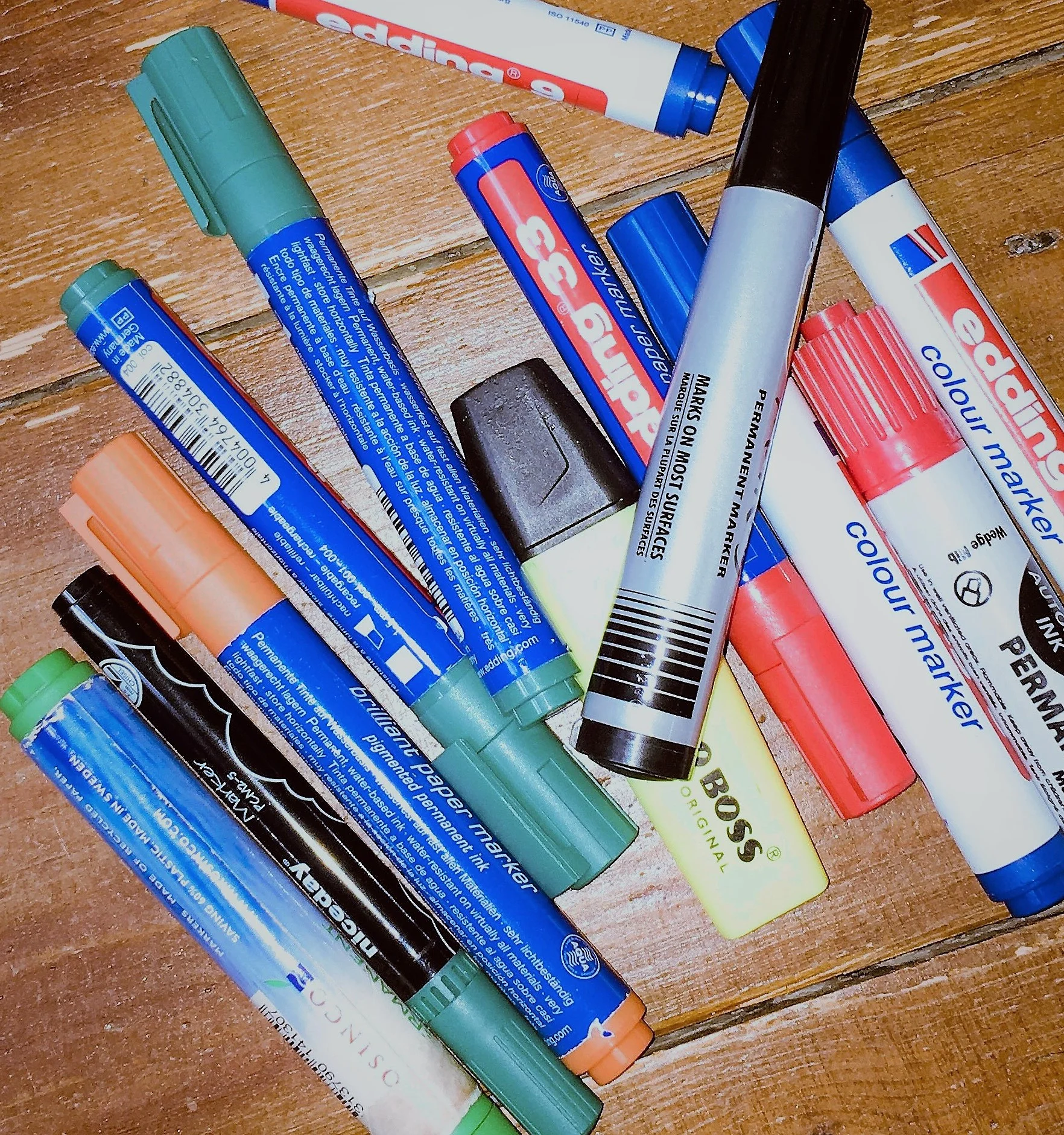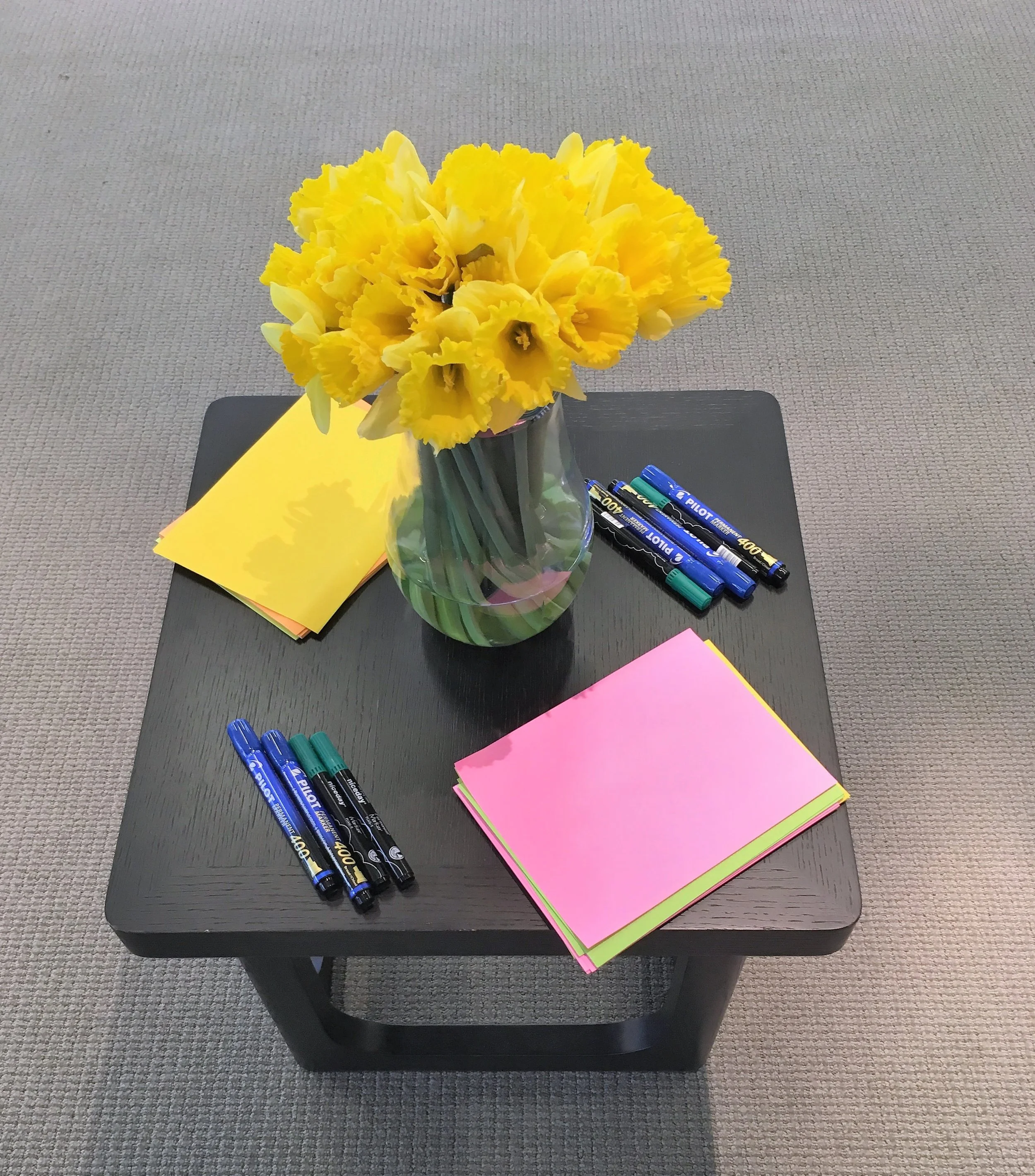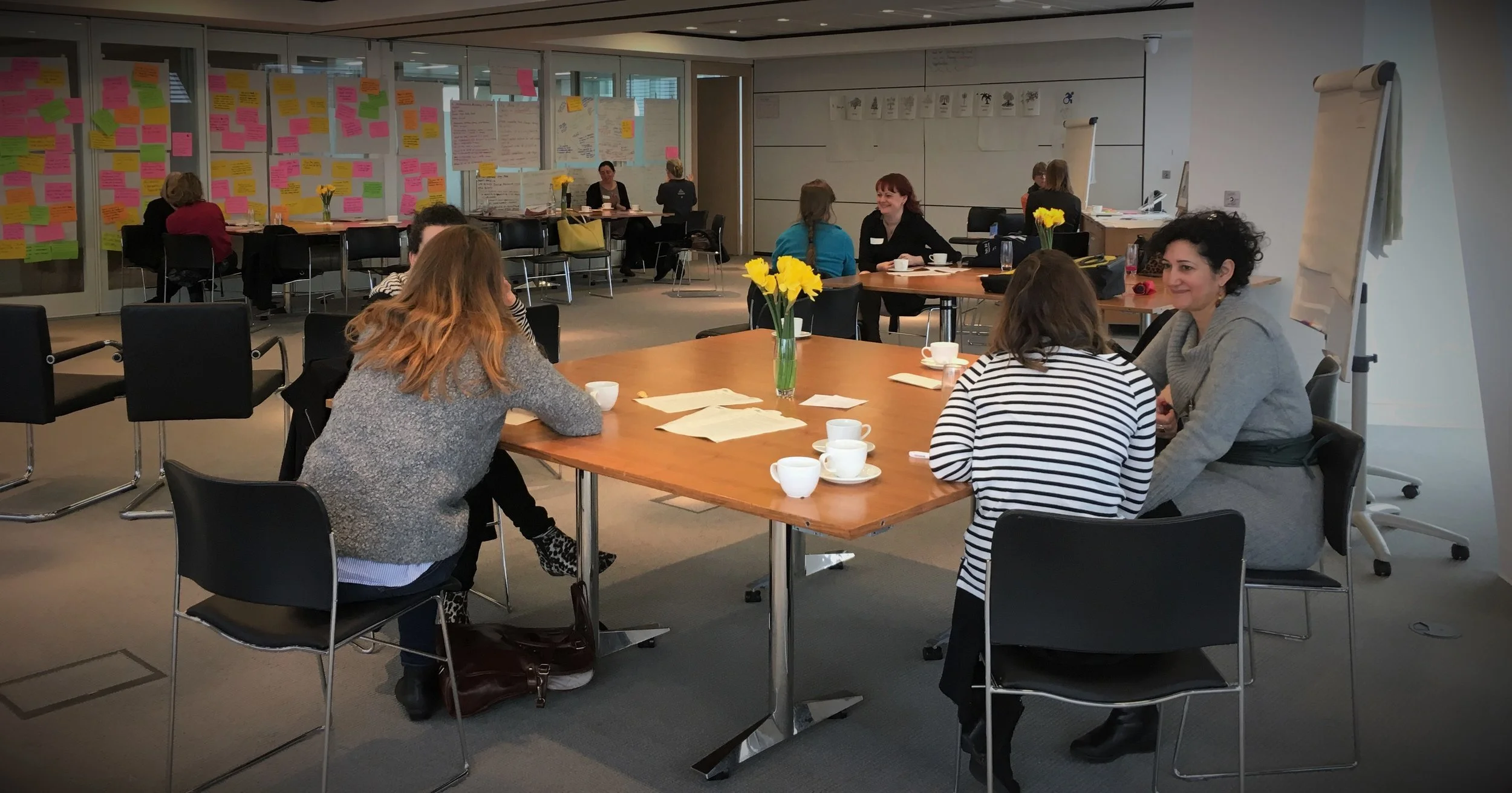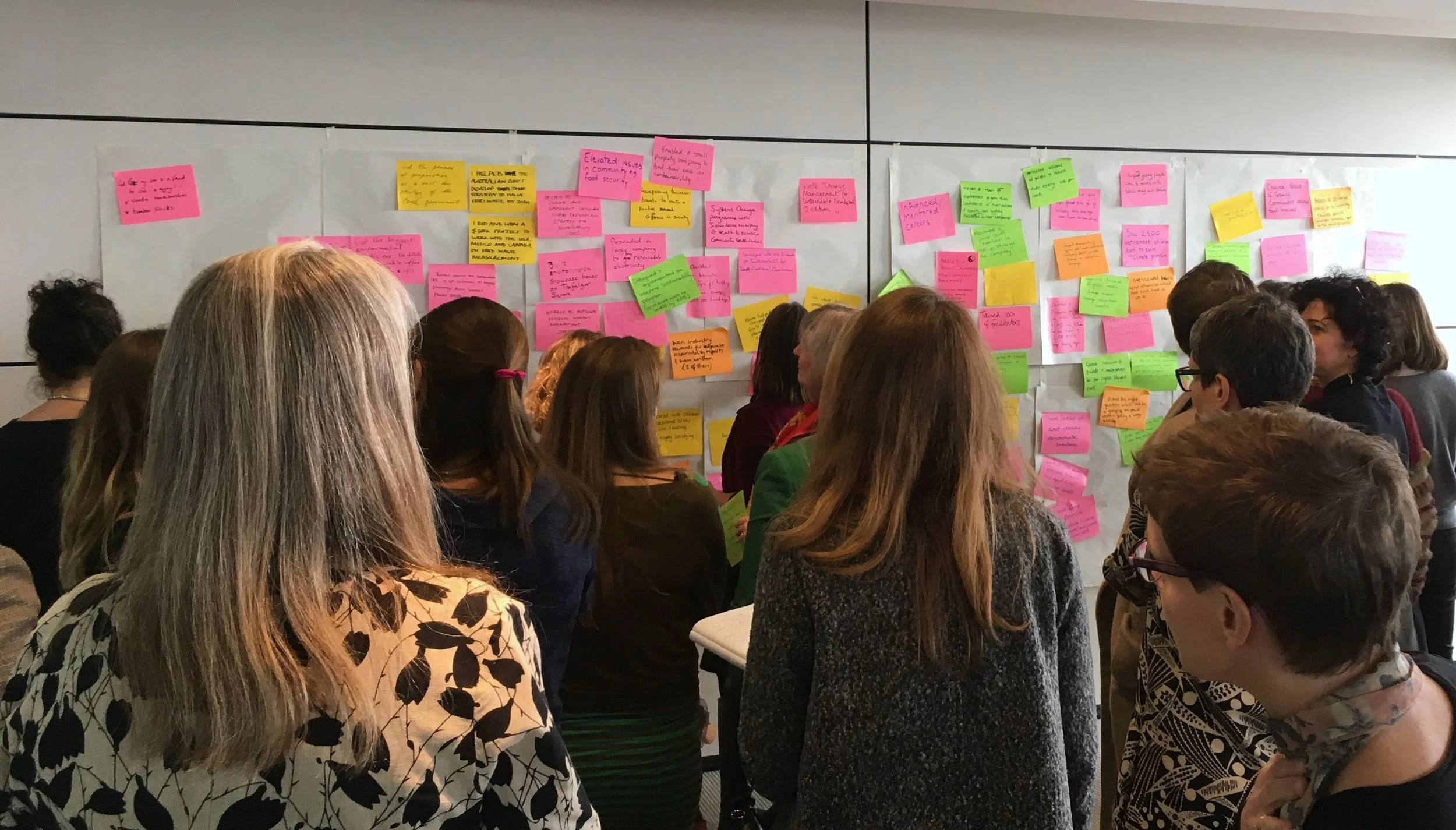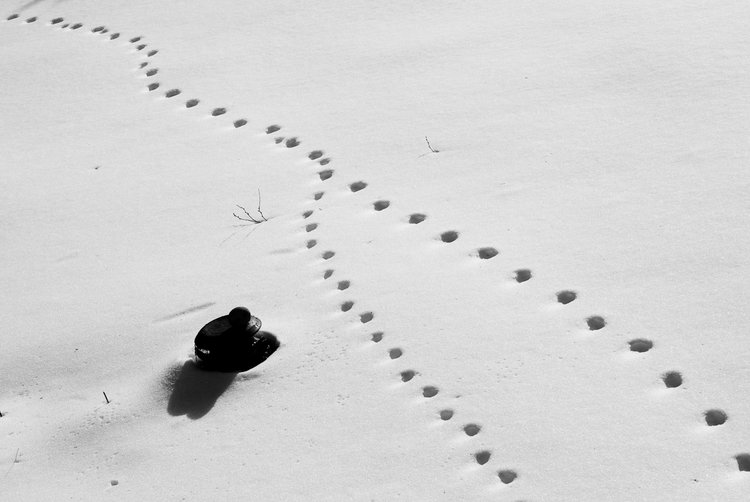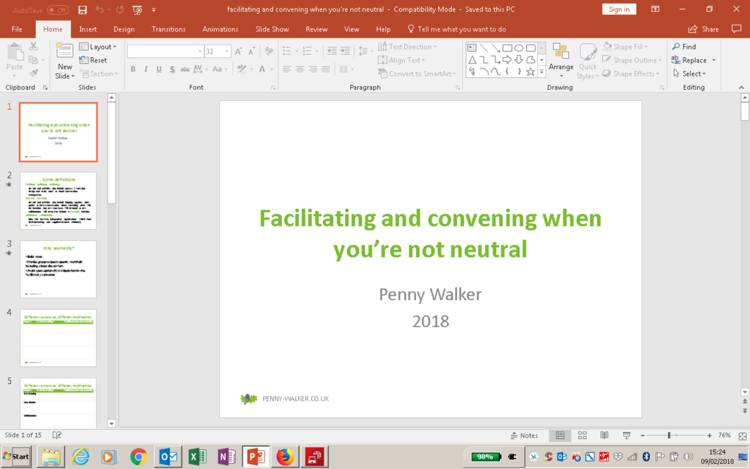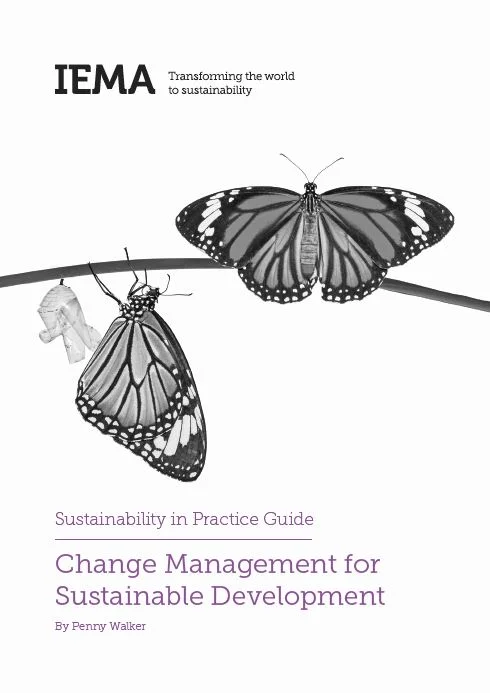I was hosting a networking and learning meet up of facilitators yesterday. We were running behind time - mostly because there was so much people wanted to say when debriefing previous exercises. So my challenge was to find a way to debrief it that didn't take too much time.
For your comfort and safety, webcasting is in use during this workshop
As a participation professional who’s been lurking around NHS Citizen as it develops, one of the most exciting aspects has been the webcasting. Even the debriefing team meeting at the end of the NHS Citizen Design Workshop in January this year (2015) was webcast. This is a level of openness and commitment to transparent reflection that goes way beyond anything I’ve been involved with before. I fell in love with NHS Citizen as I watched that.
On the other hand, when I was sitting down to design the detail of the particular event I was brought in to facilitate - the Citizens’ Jury test in Hatfield on 3rd and 4th March 2015 - I had some reservations.
'Greening' our practice as facilitators
The two worlds I straddle - sustainability and process - interweave in all sorts of ways. And one of those ways involves challenging myself, and other facilitators, about the sustainability of our own practice. And although I've called this blog post 'greening' our practice, of course there are the social and ethical aspects of sustainability as well as the environmental ones to consider.
All About Change! Discussing pro-environment behaviour change with psychologists
Putting on my clown's trousers, with Sustainable Stand Up
Contemplating ecological apocalypse, and being really really angry with the bozos who are letting it happen, can make us sustainability people pretty dull conversationalists.
In a bid to learn some new ways of delighting people while helping them stare into the abyss, I enrolled in the marvellous Sustainable Stand Up course, run by my old friend and colleague - and all round laughter fairy - Belina Raffy with support from Dr Steve Cross.
Paying attention to the mood
When I first met with Brigid Finlayson and Carolina Karlstrom, to see whether we could work together to create the first She is Still Sustainable, we talked a lot about the kind of event we wanted to make it. And our conversation focused a lot on mood, atmosphere, emotional tone: we wanted it to be “warm, safe, friendly event which is refreshing, inspiring and supportive”.
Doing the work in sustainability that we want to do
Lots of the women who came along to She is Still Sustainable said that the highlight was a co-coaching exercise we ran, using a solutions focus approach. People paired up and coached each other, asking positive, future-oriented questions about the sustainability work they wanted to do. The instructions are here.
On the spot, in the room
Any fool can design a workshop. What really tests you is having to redesign it part-way through.
You’ve done a great plan, and prepared your materials. You know how you’d like the space laid out, and your workshop will take the group on a journey towards a convergent, satisfying conclusion.
And then it all goes horribly wrong. Nasty surprises throw your plans into disarray. You need to redesign and you need to do it NOW!
Celebrate your achievements!
One of the lovely things that we did at She is Still Sustainable last month, was to build a wonderwall of our achievements. And wow! What a lot we have achieved.
Some were very personal – surviving divorce, arranging funerals, raising children....
Some had enormous reach – training 100s of facilitators, systems change programme with Sierra Leone Ministry of Health to improve community health, part of a team delivering a sustainable London 2012...
What difference do our differences make? Some thoughts on diversity in the sustainability profession
She is Still Sustainable was more workshop than a conference, but we did have two speaker panel sessions. Like other She is Sustainable events that came before ours, this included a presentation on some of the facts and figures showing the systemic disadvantages women experience in the workplace.
Who gives us permission?
In a recent coaching session, my client was exploring whether they had permission to do something. And, in an uncertain and fluid situation, how they would know whether they had permission or not. What if they misread the signs?
We developed a two-by-two matrix, to sort out the possibilities.
What has the snow revealed?
The Beast from the East has blanketed much of the UK with its beautiful sparkles, covering up roads, railways lines and in some cases front doors.
But the snow has also revealed things that aren’t usually seen: particulate pollution, uninsulated roofs, space which could be reclaimed from traffic for pedestrians and cyclists, and the impoverished nature of our soil.
Personal resilience - three ways to build yours
One of the things that came up again and again when I was talking to people about the new edition of Change Management for Sustainable Development, was supporting ourselves as sustainability professionals and as change-makers. There are three key pillars which support us: perspective, association, and giving ourselves a break.
Facilitating and convening when you're not neutral
Many organisations in the sustainability field do their best system-changing work when they are collaborating. And they find themselves in a challenging situation - playing the role of convening and facilitating, whilst also being a collaborator, with expertise and an opinion on what a good outcome would look like and how to get to it. This dual role causes problems. Here’s how to fix them.
Looking back, looking forward
Change management for sustainable development - 'a coach in your pocket'
Are you an environment or sustainability specialist, working to help your organisation step up to its role in bringing about a sustainable future? Want to make more of an impact? I want you to as well! Which is why I was so pleased when IEMA invited me to write a second edition of Change Management for Sustainable Development.
And when one of our peer readers said "it's like having a coach in your pocket", I was really happy, because that's exactly what I wanted it to be.
Surfing a wave of change - #OurBluePlanet
What difference does the business model make?
There's a lot of talk about the need for new business models, for sustainable development. What might make one business inherently more sustainable than another? What kind of businesses are embracing their special role in bringing about a sustainable society? Or helping us transition?
We in the sustainability movement sometimes struggle to understand the concept of a business model at all. What is a business model? How do you distinguish between one model and another?
In-house facilitation networks - what makes them work?
Inside some organisations, there are networks of facilitators who design and run better meetings. Perhaps you are in such a network, or have worked with people who are. Perhaps you've designed and run training for people who go on to be part of such a network. These are, for the most part, people who facilitate either as a part of their job (and are given management support and time within their job to do this) or on top of their day job (having to carve out time informally, and doing it because they love it). They are not generally full-time facilitators.
IEMA's Leading the Way Conference
Are you coming to EMEX next Thursday 23rd? Or to IEMA's Leading the Way conference, which is running alongside it?
I'll be hanging round the IEMA stand in the morning, and then giving you all some sneak peeks at the shiny new improved and fully updated second edition of Change Management for Sustainable Development. I'll be joined by the wonderful Jane Ashton (TUI Group) and Vicky Murray (Pukka Herbs), with Nick Blyth from IEMA to help us out and some surprise guests.
